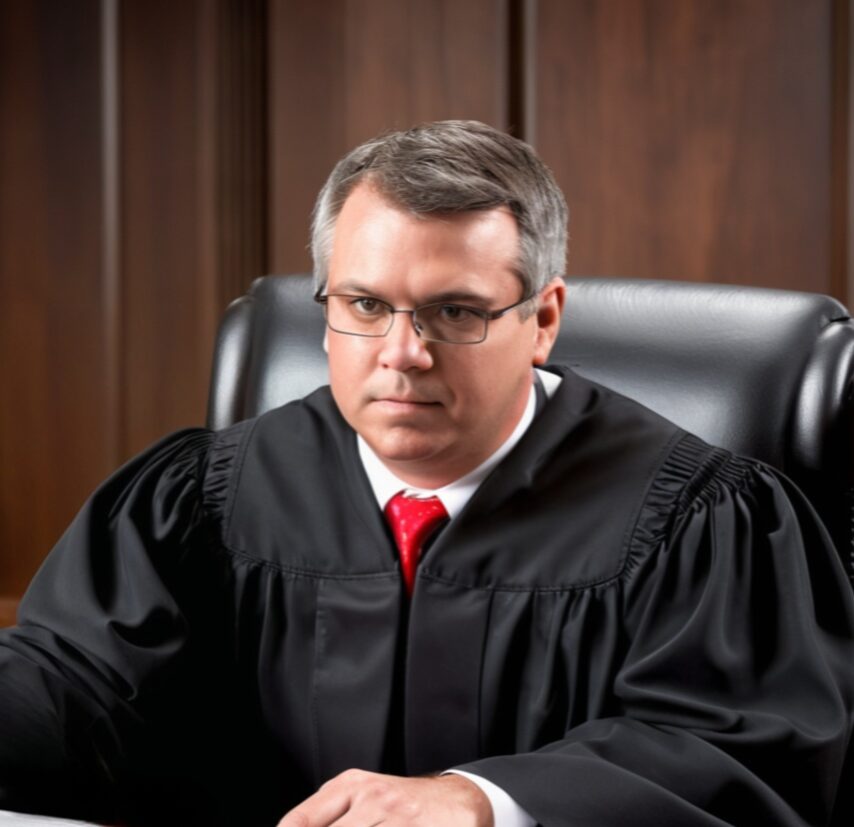Disclaimer: Consumer legal fundings and advances are not loans under applicable financing laws. Rockpoint’s products are non-recourse, meaning if you don’t win your case, you don’t have to pay us back. Receiving financial support in connection with a legal case is typically (and oftentimes incorrectly) referred to as a “lawsuit loan” or “loan.” Therefore, for the ease of search references, these terms may be used in this context to refer to our funding products, but we maintain our separateness from consumer loan products in all legal aspects.
The term “sua sponte” traces back to Latin, meaning “of one’s own accord.” In legal contexts, it refers to a judge’s ability to initiate certain actions without waiting for motions or formal requests from the parties involved. This concept matters greatly in probate, where individuals navigate the distribution of a deceased person’s assets. Emotions often run high, and conflicts may arise unexpectedly over wills, mental capacity, or asset validity. With “sua sponte” authority, a judge can step in when necessary to keep the process fair and transparent.
Historical Roots and Ongoing Relevance
“Sua sponte” has roots in early Roman law, a system that recognized the importance of officials intervening to maintain fairness. Over centuries, that tradition evolved into a legal principle used in many jurisdictions today. Although the phrasing may sound old-fashioned, courts continue to embrace the underlying idea: judges serve not only as referees, but also as guardians of justice. If an estate dispute appears one-sided or critical details have been overlooked, the power to act on a judge’s own initiative becomes highly relevant.
How “Sua Sponte” Manifests in Probate
During probate, a court reviews the will, gathers information about debts and taxes, and oversees the distribution of remaining assets. In simpler cases, each side follows the usual procedure of filing the necessary documents, making arguments, and waiting for the judge’s decision. However, complications sometimes go unaddressed because no one knows they exist or because an interested party lacks the resources to raise them.
That is where “sua sponte” can step in. A judge who notices, for instance, that a signature appears questionable or that a beneficiary’s rights may be undermined can order an investigation. This might include summoning documents that had not been entered into evidence or appointing a guardian ad litem for minors or incapacitated heirs. Such judicial oversight can alert everyone to issues that might otherwise emerge too late, causing lengthy disputes or appeals.
Advantages of Proactive Judicial Action
Early judicial intervention can reduce the likelihood of drawn-out court battles. When a judge addresses key concerns right away, the family and all interested parties may avoid months (or even years) of uncertainty. This matters considerably in probate, where heirs may need access to funds for household expenses or estate maintenance.
Another benefit involves protecting individuals who cannot easily stand up for themselves. It is not uncommon for probate matters to involve older relatives, minors, or people with disabilities. When suspicious circumstances arise—such as abrupt changes to a will—a judge exercising “sua sponte” powers can serve as a safeguard. By launching an inquiry independently, the court helps ensure that no one manipulates the situation at the expense of a vulnerable heir or the decedent’s true wishes.
Potential Downsides and Public Perception
Despite its helpful aspects, “sua sponte” authority can spark concerns about impartiality. Judges who decide on their own to take certain steps sometimes face accusations of favoring one side. An heir who is subjected to deeper scrutiny may suspect bias, especially if the judge zeroes in on a detail that no other party had questioned. This perception of bias can fuel frustration and, in some instances, lead to appeals.
Another concern is the possibility of increased legal costs. An unplanned investigation might involve hiring experts, analyzing new evidence, and scheduling additional hearings. These fees can add up quickly, particularly when estates are small or the estate’s assets are already tied up in other disputes. Families are sometimes torn between welcoming thorough oversight and worrying about expenses spiraling out of control.
Court Discretion and Balance
The power to act on one’s own initiative does not grant unlimited authority to a probate judge. Procedural rules and standard judicial ethics still apply. Courts generally aim to give notice when launching a “sua sponte” review so that all sides may respond. This structure not only maintains transparency but also keeps the process from feeling arbitrary. By including the parties in every step, a judge can preserve trust while exercising proactive measures.
In practice, many judges weigh the severity of potential risks against the benefits of stepping in. Clear signs of fraud or an obvious procedural error will almost always warrant immediate action. In borderline cases, a more cautious approach might be adopted to let the adversarial process play out, allowing each side to bring forth its own arguments.
Evolving Considerations
Probate law, like many areas of the legal world, continues to adapt to new realities. Digital assets, emerging technologies, and novel types of estate planning instruments complicate traditional approaches. That evolving landscape could expand the use of “sua sponte,” especially if attorneys are not fully prepared to handle unusual circumstances or advanced technical evidence. Judges in those situations may have no choice but to explore uncharted territory through independent investigation.
Conclusion: Preserving Fairness and Clarity
In probate cases, “sua sponte” authority provides a safety net against errors, oversight, or outright misconduct. Even though additional inquiries might increase costs or prompt concerns about bias, the court’s willingness to act without a formal motion often preserves the true intentions of the decedent and the rightful interests of the heirs. When used with respect for due process and transparency, this power can help families achieve a more confident resolution, even amid the emotional challenges that naturally accompany settling an estate.








